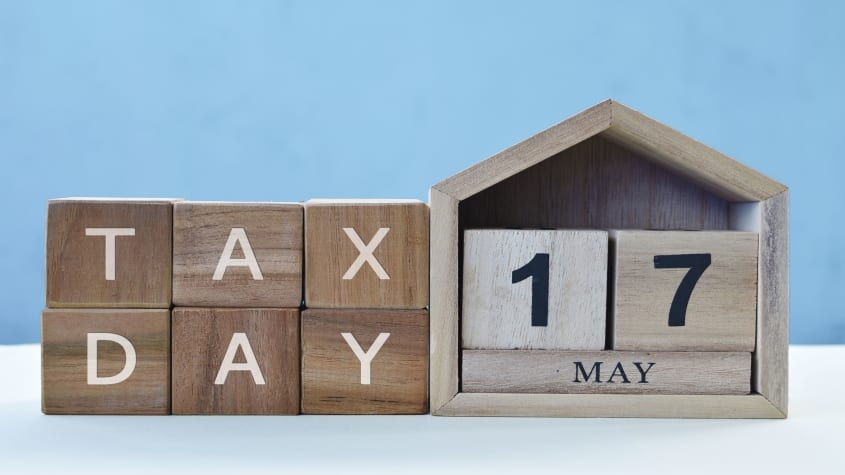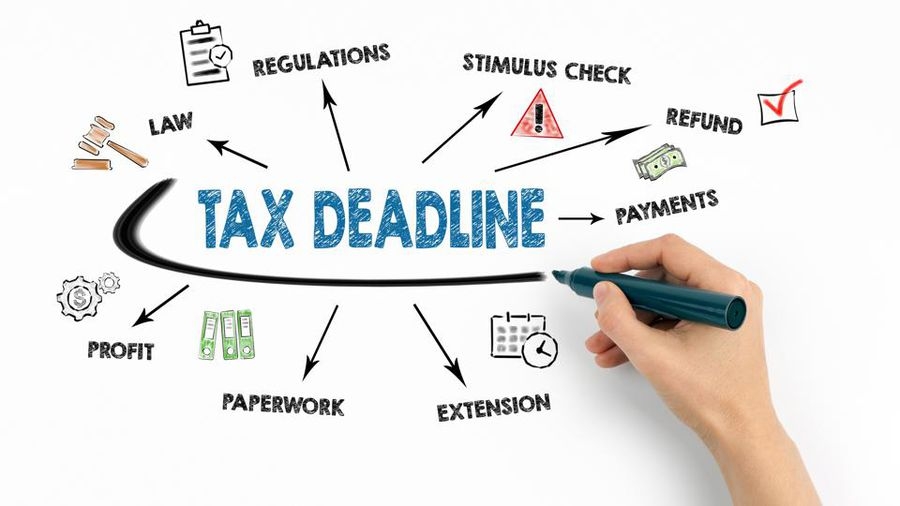Tax Day: Deadline to File Tax, What to Know
 |
| Photo kiplinger |
While this year's "Tax Day" was pushed back from April 15 to May 17 to give people more time to file a Form 1040, the day of reckoning is almost here.
On March 17, the Internal Revenue Service (IRS) provided some welcome news to millions of taxpayers by postponing the tax filing deadline from April 15 to May 17, cited Forbes.
And depending on where you reside, you may have even more time to file. The IRS extended the tax deadline to June 15 to those who live in Louisiana, Texas, and Oklahoma since winter storms impacted these areas.
If you have yet to file your 2017 tax return and expect to receive a tax refund, you’ve been gifted a little more time. Typically, you must file a tax return with the IRS within three years of its original due date to obtain a tax refund.
What should I do if I can't file before the May 17 deadline?
 |
| Photo cnet |
If you can't file your income tax return on time, you can get an extension until October 15. However, to get the extension, you have to request it by May 17. To make the request, either file Form 4868 or make an electronic tax payment.
Just remember that the extension to file your return doesn't extend the time to pay your tax. You still have to estimate the amount of tax you'll owe and pay your tax bill by May 17. If you don't, the IRS will charge you interest on the unpaid balance and tack on additional late-payment penalties.
For more details on taxes this year, we spell out the difference between a tax refund and a tax return and how tax season is different in 2021.
**READ MORE: Update News Hunter Biden under investigation over taxes
How does the May 17 tax due date affect my stimulus check?
The IRS uses information on your 2020 tax return, if it has it, to determine the amount you'd get in your third stimulus check. Specifically, the IRS looks at the AGI, or adjusted gross income, on your 2020 form to help figure out your payment by using a new stimulus check formula.
 |
| Photo USA Today |
But the tax agency will use your 2019 return if your 2020 taxes haven't been accepted by the time your payment is sent. That could work in your favor if your income from 2019 was lower than your income from 2020 (you won't have to return the money in most cases).
However, if your 2020 tax return would bring you a larger third stimulus check, like if you have more dependents, you'll want to file as soon as possible, so the IRS processes your 2020 taxes before releasing your third stimulus check. Here's what people who don't normally file taxes should know.
| Last year, a shutdown because of the pandemic left the IRS with a backlog of unprocessed paper tax returns. This year, even with the late start to the tax season, the agency is still struggling to deal with the 2019 paper returns, along with a crush of 2020 returns, IRS. “resource” issues and technology problems, the advocate service said. |
Here are a few things to keep in mind, suggested by US News
1.You can postpone paying your federal income tax for the 2020 tax year another 32 days (from April 15 to May 17) without penalties and interest.
2.The new May 17 tax deadline doesn't change the Oct. 15 deadline. As tax filing procrastinators know, Oct. 15 is the deadline to file your taxes if you ask for an extension. As procrastinators also know, the deadline is an extension to file your taxes but not a license to delay paying your taxes.
3.Your state taxes may still be due on April 15. Generally, states will end up moving their tax filing deadlines, but you'll want to pay attention to what your state does and not assume that the date has been moved.
4.Keep in mind that if you think you're going to get a tax refund, filing earlier – rather than waiting until May 17 – will help you get your money faster. That's probably obvious, but in the craziness of this last year, you'd be forgiven for not recognizing that.
Why are taxes this year connected to stimulus plus-up payments?
The IRS is looking at your 2020 federal taxes to determine if it underestimated the amount of money you received with the third stimulus check. If the IRS based your payment on your 2019 tax return but your 2020 federal tax return shows you qualify for more money for that third payment, the IRS will send you the difference as a separate plus-up payment.
Plus-up payments are part of the Economic Impact Payments (stimulus checks) from the American Rescue Plan, the latest coronavirus relief bill, which was passed under President Joe Biden this year.
Simply put, plus-up payments are additional checks being sent to people who did not receive the proper amount of money from earlier checks.
There can be several reasons why people did not receive the proper stimulus amount the first time around.
"These 'plus-up' payments could include a situation where a person's income dropped in 2020 compared to 2019, or a person had a new child or dependent on their 2020 tax return, and other situations," the IRS states on its website.
FAQsI worked from home this year. Can I take the home office deduction? Probably not, unless you’re self-employed, an independent contractor or a gig worker. The tax law overhaul of late 2019 eliminated the home office deduction for employees from 2018 through 2025. “Employees who receive a paycheck or a W-2 exclusively from an employer are not eligible for the deduction, even if they are currently working from home,” the I.R.S. said. Are my unemployment benefits taxable? Mostly. Unemployment insurance is generally subject to federal and state income tax. But you won’t owe so-called payroll taxes, which pay for Social Security and Medicare. The new relief bill will make the first $10,200 of benefits tax-free if your income is less than $150,000. This applies to 2020 only. Unlike paychecks from an employer, taxes for unemployment aren’t automatically withheld. Recipients must opt in — and even when they do, federal taxes are withheld only at a flat rate of 10 percent of benefits. While the new tax break will provide a cushion, some people could still owe the IRS or certain states money. What if I'm missing documents for my 2017 taxes? You can find a prior year's tax forms on the IRS' forms page. If you are missing a W-2, 1098, 1099 or 5498 from 2017, the IRS recommends you request a copy from your employer or bank. You can also order a free wage and income transcript from the IRS and then use the information on the transcript to file your tax return. |
 $300 Monthly Child Tax Credit Payments: Start Date and Details $300 Monthly Child Tax Credit Payments: Start Date and Details Parents may soon start getting monthly payments from the IRS, due to a recent change to the child tax credit. For more infomation about the ... |
 Facts about The New Bitcoin Tax Rules and Tax Guide for you Facts about The New Bitcoin Tax Rules and Tax Guide for you Latest Bitcoin Tax Guide: Bitcoin buyers-tax season is coming soon and your investment will likely have an impact. We'll explain it all in our easy-to-follow ... |
 Facts about UK Budget 2021: Many will pay income tax more and Everything You need to Know Facts about UK Budget 2021: Many will pay income tax more and Everything You need to Know Facts about UK Budget 2021: Many will pay income tax more and Everything You need to Know. Some 1.3 million people are expected to start ... |



























